This book is a brilliant overview of American history from the 1960s to the post9/11 era. William ORourke is both a novelist and a political commentator he wrote weekly columns for the Chicago Sun-Times and a forceful writer of nonfiction.
Maura Stanton, author of Immortal Sofa: Poems by Maura Stanton
I can think of no other contemporary writer more suited to the task of chronicling his literary generation. A voracious reader, ORourke has always had his finger on the pulse of the contemporary American literary scene.
Corinne Demas, author of The Writing Circle
I dont know any writer who can be as funny and as gloomy at the same time as William ORourke. Perhaps thats why he has a fresh take on anything he looks at, and in his grumpy way he is interested in almost everything, from agnostics teaching at Catholic universities to the Zeitgeist of primetime television. He always hoped to apply for the job of public intellectual, he tells us, but then the position disappeared and a hundred thousand bloggers took its place. ORourke makes he has always made decency and common sense seem the most startling ingenuity which, come to think of it, they are. As skeptical as he is watchful, as ardently hopeful as he is, most of the time, horrified, with sparkling wit that never takes a vacation, he is our unpaid public intellectual number one.
Jaimy Gordon, author of Lord of Misrule, winner of the 2010 National Book Award for Fiction
BOOKS BY WILLIAM OROURKE
The Harrisburg 7 and the New Catholic Left
The Meekness of Isaac
On the Job: Fiction about Work by Contemporary American Writers (Editor)
Idle Hands
Criminal Tendencies
Signs of the Literary Times: Essays, Reviews, Profiles 19701992 Notts
Campaign America 96: The View from the Couch
Campaign America 2000: The View from the Couch
On Having a Heart Attack: A Medical Memoir
Notre Dame Review: The First Ten Years (Co-editor)
confessions of a guilty freelancer
INDIANA UNIVERSITY PRESS
Bloomington & Indianapolis

This book is a publication of
INDIANA UNIVERSITY PRESS
601 North Morton Street
Bloomington, Indiana 47404-3797 USA
iupress.indiana.edu
Telephone orders 800-842-6796
Fax orders 812-855-7931
2012 by William ORourke
All rights reserved
No part of this book may be reproduced or utilized in any form or by any means, electronic or mechanical, including photocopying and recording, or by any information storage and retrieval system, without permission in writing from the publisher. The Association of American University Presses Resolution on Permissions constitutes the only exception to this prohibition.

The paper used in this publication meets the minimum requirements of the American National Standard for Information Sciences Permanence of Paper for Printed Library Materials, ANSI Z39.48-1992.
Manufactured in the United States of America
Library of Congress Cataloging-in-Publication
Data
ORourke, William.
Confessions of a guilty freelancer / William
ORourke.
p. cm.
Includes index.
ISBN 978-0-253-00181-8 (pbk. : alk. paper)
ISBN 978-0-253-00185-6 (e-book)
I. Title.
PS3565.R65C66 2012
814.54 dc23
2012014828
1 2 3 4 5 16 15 14 13 12
FOR MAGGIE
AND JOE
AND MY COLLEAGUES AT NOTRE DAME
In our age there is no such thing as keeping out of politics. All issues are political issues, and politics itself is a mass of lies, evasions, folly, hatred, and schizophrenia. When the general atmosphere is bad, language must suffer.
George Orwell, Politics and the English Language, 1946
Contents
Preface
The first confession I have to make is that Confessions of a Guilty Freelancer is misnamed. Technically, I havent been a freelancer all these years; Ive been a moonlighter. Since 1974, I have been employed by one institution of higher learning or another. Mea culpa.
But, in the world of words, moonlighter hasnt been much used, if at all, when it comes to those who write for the public prints. That freelancer has been the designation universally used is not an adequate excuse, of course. One of the first writers I ever knew personally, Edward Dahlberg (190077), used to thunder at me: All excuses are perjuries! and I certainly believe that.
But, in all my years of writing what is loosely called journalism (literature in a hurry, according to Matthew Arnold [182288]) I have never worked for any of the publications that have published me. In that way, I am solidly freelance. Freelancing has never been a pretty word, bringing to mind, as it does, medieval sport, jousting, and the general aggressiveness required to wield a pen for hire. I have never been a pen for hire. It is not so much for high-horse reasons, or that I was entirely above that sort of thing; it was because I didnt have a talent for it, pitching story ideas, interesting eager editors at the glossy magazines in New York City about trends and celebrities. Friends of mine who did have that talent went on to much more remunerative work in Hollywood. I left New York City, and returned to the Midwest, to teach at the University of Notre Dame, where all of the contents of this book have been written.
In the essay that ends this volumes first section, the title essay, you will find the line, It is hard to overestimate the low esteem freelancing inspires in the regularly employed. After the article appeared, I was sent a note by a Chicago press critic, one who had never taken public notice of me during the five years I wrote a weekly political column for the Chicago Sun-Times, saying that the line had struck him and he wanted to apologize for never mentioning me, though he read my column regularly. Being freelance is similar to being single at a certain age, a suspect category.
We currently are experiencing an unsettling transitional time in journalism. I was paid, to write for the Sun-Times, a freelance rate of $150 a column. (None of those columns are found herein; but you can find them at www.theviewfromthecouch.com.) When the column ended, I presumed my demise was about money and space. I was the canary in the journalistic coal mine and was the first to go as the latest recession hit newspapers early. Steve Huntley, the editorial page editor of the Sun-Times, the man responsible for my being a five-year fixture there, had once told me, No, when I asked him if he wanted to write columns. The unsigned editorials were more to his liking. Shortly after I was cut loose, the Sun-Times began to use more wire service copy and Huntley, himself, turned up as a regular columnist. The cutbacks had forced less original copy being used, while, at the same time, sweating those on staff who were permanently employed to produce more.
Looking over my table of contents, I see that about half of the contents was written for free. (And those that were remunerated fetched mostly paltry sums.) Recall your Boswell, quoting Samuel Johnson: No man but a blockhead ever wrote, except for money. Well, we have created a generation of blockheads, and more to come.

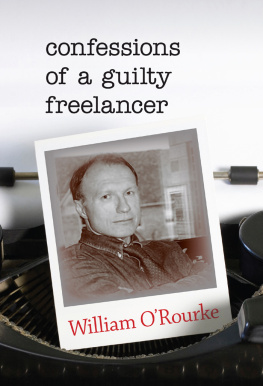

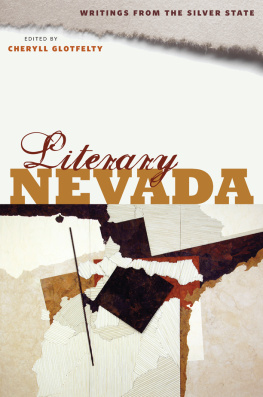


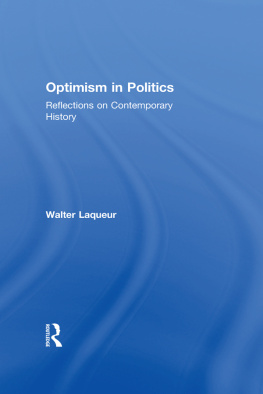
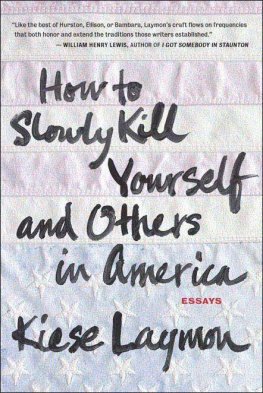
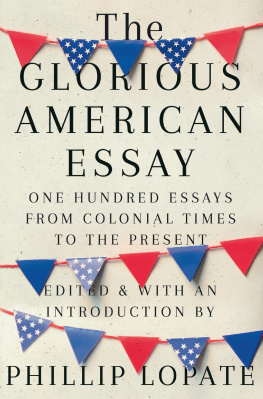

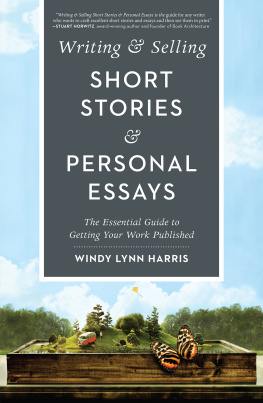
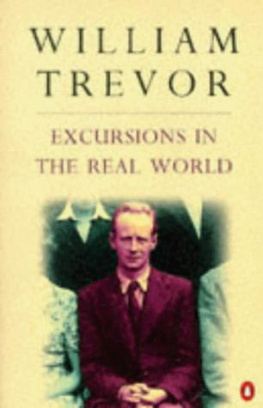


 The paper used in this publication meets the minimum requirements of the American National Standard for Information Sciences Permanence of Paper for Printed Library Materials, ANSI Z39.48-1992.
The paper used in this publication meets the minimum requirements of the American National Standard for Information Sciences Permanence of Paper for Printed Library Materials, ANSI Z39.48-1992.